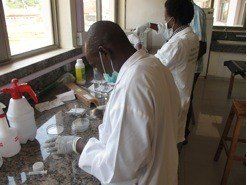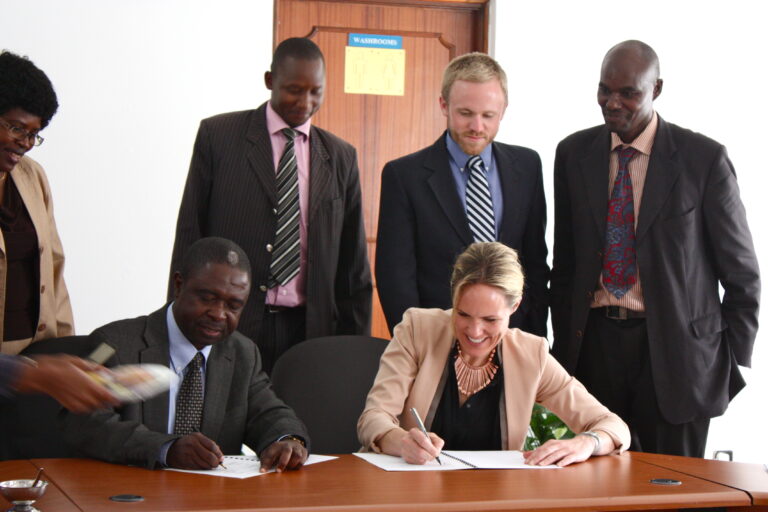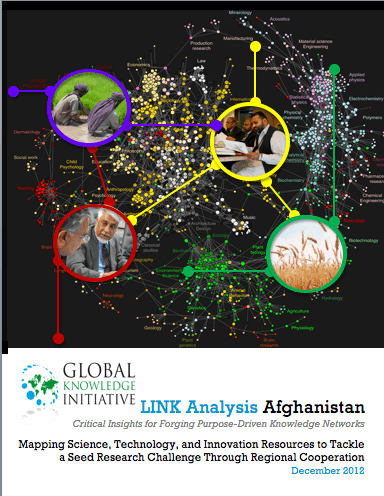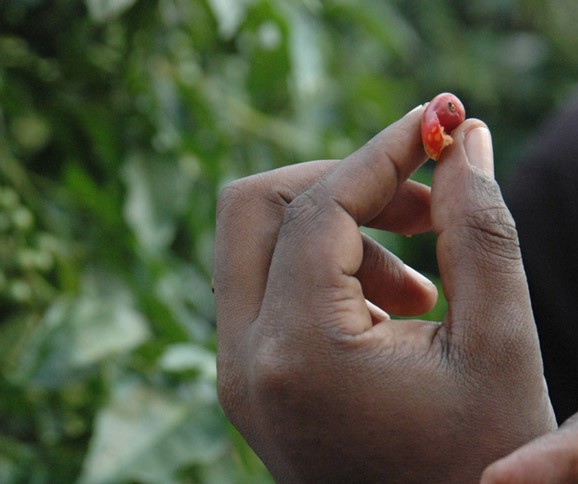Rwandan prize winners test potato taste solutions
For many people coffee is an important ritual in their daily routines—for others, coffee provides most of their income. As the world’s second most traded commodity, after oil, coffee plays an integral role in many economies. For countries in the so-called “bean belt” in Africa—Rwanda, Burundi, and the Democratic Republic of Congo—coffee accounts for a considerable portion of all agricultural exports; however, as the industry has matured over the past decades, an insect called the “antestia bug” has been linked to a potato taste defect that degrades the quality of the coffee, resulting in huge revenue losses in these countries. Antestia bugs also destroy coffee cherries outright, causing some farms to lose up to 30% of coffee harvests. In this context, Joseph Bigirimana and his team of researchers at the Rwanda Agriculture Board have taken a leading role in an international network taking on this critical challenge.

Since 2011, the Global Knowledge Initiative has worked in Rwandan coffee through its LINK (Learning and Innovation Network for Knowledge and Solutions) program, convening, training, and activating a global network based at University of Rwanda. This network includes researchers, development practitioners, and businesses working together to combat the potato taste defect. To propel this network’s activities, GKI partnered with the Alliance for Coffee Excellence (ACE) to organize a Potato Taste Challenge Prize, which they announced at the March 2014 Coffee Research Symposium in Kigali.
As the winner of the 2014 Potato Taste Challenge Prize, Bigirimana and research partners Dr. Dick Walyaro and Dr. Theodore Asiimwe set off with the nearly $20,000 USD prize to investigate whether pesticides such as pyrethroids could effectively mitigate and control antestia bug infestations, and potato taste more generally. They are especially interested in the efficacy of locally produced organic pesticides made from pyrethrum plants grown in Rwanda.
In the months since winning the Prize, Bigirimana and his team have collected data from 600 farms in Rwanda on antestia bug infestation, current pest management practices in use by farmers, and other data aimed at understanding what works in controlling antestia and clarifying the relationship between the insects and the potato taste defect. Following the field sampling, the team tested the efficacy of five different pyrethroid pesticides in the laboratory and has begun conducting field trials in light of the successful lab results. They hope that these field trials will clearly show how effective pesticide use and farmer support can limit the negative impacts of antestia bugs. Bigirimana and his team endeavor to leverage the network of researchers and businesses, and technical support provided by ACE and GKI to eliminate the threat of the potato taste defect to coffee in the Great Lakes region of Africa.
Contributed by: Srujana Penumetcha and Andrew Gerard







